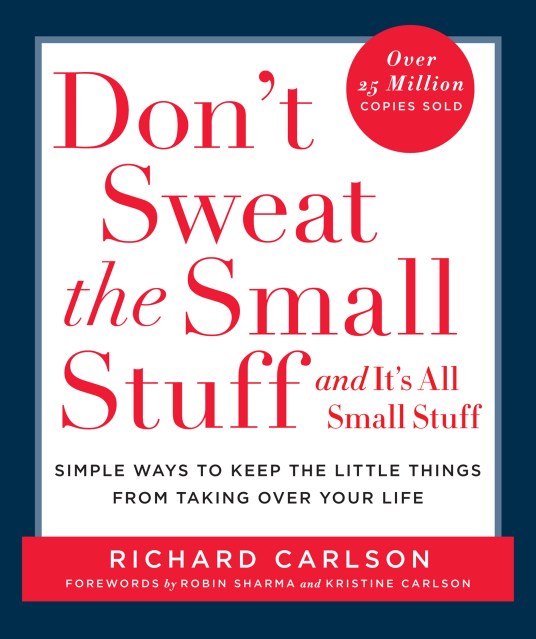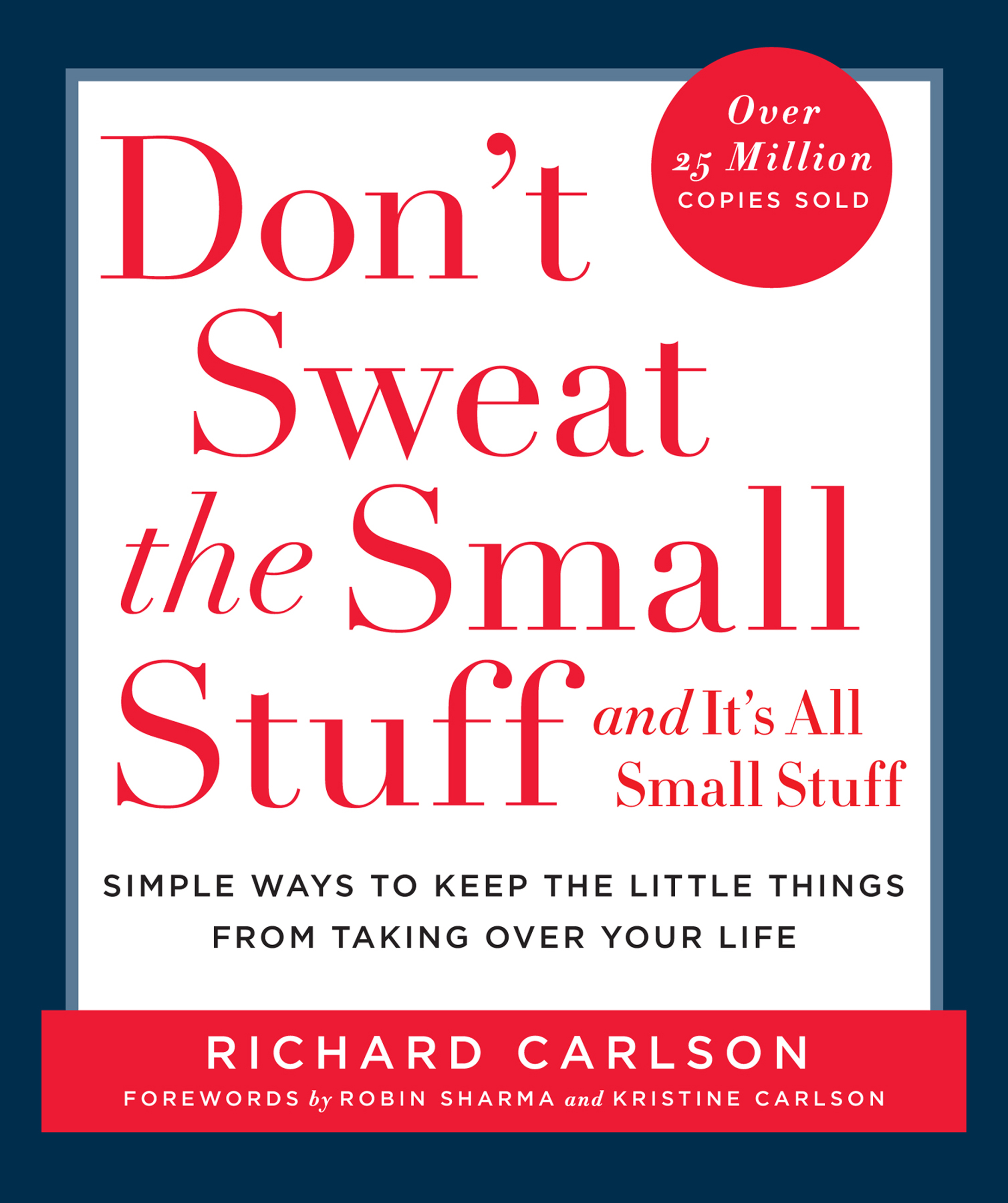Promotion
Use code MOM24 for 20% off site wide + free shipping over $45
Don't Sweat the Small Stuff and It's All Small Stuff
Simple Ways to Keep the Little Things from Taking Over Your Life
Contributors
Formats and Prices
Price
$9.99Price
$12.99 CADFormat
Format:
ebook (Digital original) $9.99 $12.99 CADThis item is a preorder. Your payment method will be charged immediately, and the product is expected to ship on or around January 1, 2002. This date is subject to change due to shipping delays beyond our control.
Also available from:
Featured in Don't Sweat the Small Stuff: The Kristine Carlson Story starring Heather Locklear, premiering on Lifetime
Put challenges in perspective, reduce stress and anxiety through small daily changes, and find the path to achieving your goals with this groundbreaking inspirational guide—a self-help classic.
Don't Sweat the Small Stuff…and It's All Small Stuff is a book that tells you how to keep from letting the little things in life drive you crazy. In thoughtful and insightful language, author Richard Carlson reveals ways to calm down in the midst of your incredibly hurried, stress-filled life.
You can learn to put things into perspective by making the small daily changes Dr. Carlson suggests, including advice such as "Choose your battles wisely"; "Remind yourself that when you die, your 'in' box won't be empty"; and "Make peace with imperfection". With Don't Sweat the Small Stuff… you'll also learn how to:
Put challenges in perspective, reduce stress and anxiety through small daily changes, and find the path to achieving your goals with this groundbreaking inspirational guide—a self-help classic.
Don't Sweat the Small Stuff…and It's All Small Stuff is a book that tells you how to keep from letting the little things in life drive you crazy. In thoughtful and insightful language, author Richard Carlson reveals ways to calm down in the midst of your incredibly hurried, stress-filled life.
You can learn to put things into perspective by making the small daily changes Dr. Carlson suggests, including advice such as "Choose your battles wisely"; "Remind yourself that when you die, your 'in' box won't be empty"; and "Make peace with imperfection". With Don't Sweat the Small Stuff… you'll also learn how to:
- Live in the present moment
- Let others have the glory at times
- Lower your tolerance to stress
- Trust your intuitions
- Live each day as it might be your last
Genre:
- On Sale
- Jan 1, 2002
- Page Count
- 272 pages
- Publisher
- Hachette Books
- ISBN-13
- 9780786870080
Newsletter Signup
By clicking ‘Sign Up,’ I acknowledge that I have read and agree to Hachette Book Group’s Privacy Policy and Terms of Use







